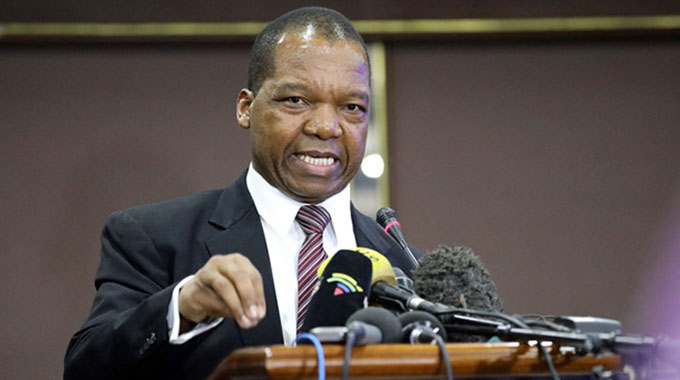EDITORIAL COMMENT : Basic food price moratorium viable

Price freezes normally lead fairly quickly to supply shortages and those in turn to a flourishing black market fed by smuggling, totally negating any advantage of the freeze, and this chain of events is even more likely in an economy suffering marked inflation.
However, the very limited price moratorium for a handful of basic goods now finalised in Zimbabwe after discussions between producers and the Government can work, and work rather well, so long as a number of conditions are met, the most important being adequate flows of foreign currency at a fixed exchange rate to buy the required imported inputs.
There was a dramatic surge of prices for these basic goods, along with almost everything else, at the end of March and the beginning of April.
These were triggered by an earlier surge in foreign currency exchange rates, both the official interbank rate and the black market rate.
Producers were expecting further surges and built these expectations into their pricing.
But with a stable exchange rate set for the emergency, the expectations were premature, and so prices can be returned to the 25 March levels.
This will mean that the effects of the official exchange rate changes that actually happened will remain, but the expected further rises will not.
Retailers are less of a problem. There is a great deal of competition in the retail sector, and that normally forces everyone to keep the same sort of margins.
Most supermarkets and many shops set low percentage mark-ups on basic goods. They recognise that everyone buys these, and quite often goes into a shop just to buy essentials, but they might well add other items to the trolley.
If a retailer has the highest prices in town for basics then others will get these customers.
The retail outlook changes a bit if an item is in short supply, as we have seen with roller meal.
Then some cheat, selling the commodity back door, diverting it to the black market or just allowing staff to buy the lot and make a few dollars on the side.
But so long as supplies are reasonable, normal competition works.
The prime cost for producers is the foreign currency to buy the maize, wheat, soya beans and other raw materials.
If Zimbabwean farmers had been properly looked after in the First Republic there would be less need to import, but at the moment we have to buy too much of our food from farmers in other countries.
So the moratorium, to work, must be built on the condition that the exchange rate remains stable.
The interbank rate moved rapidly after it was decided to allow it to be the result of a more open trading system. This in turn allowed several months of inflationary pressure, which had been kept out of that market, to be absorbed by the trading of foreign currency, and the result of this managed float was a fall in the value of the local currency, as had been expected and predicted.
As Covid-19 was recorded in Zimbabwe, and the lockdown was ordered, the authorities decided to freeze the exchange rate at the value it had now reached, $25 to US$1. This was not an artificial fixing; it was the value the market had set at that point.
It cannot be kept there forever, but can be kept for a little while, especially as tobacco auctions have been exempted from the lockdown and mining allowed to restart. This means there will be foreign currency inflows.
At the same time, the lockdown has reduced traffic on the roads by a significant amount, cutting the need to import our biggest single import, petroleum fuels, and reduced shipments of other non-essential goods since the factories that make them are also under lockdown or because there is no available cargo capacity.
Even the cross-border trading, a continual drain on foreign currency, is not functioning at the moment because traders cannot travel.
There is still pressure from the black market, whose rate also surged. Part of this was retaining the premium between the two rates. The black market buys cash, US dollar banknotes, and those buying these notes are not just looking at trading, or even cross-border trading, but also to make capital transfers, that is to smuggle this money out of the country into foreign bank accounts.
So the black market will always offer more for US dollars, but that premium was higher than normal and expected.
The Reserve Bank of Zimbabwe (RBZ), which can see into bank accounts, quickly found the source of the jump, two bureaux de change buying almost anything at almost any price for a small group of buyers.
They stopped this, but the pressure is still there and there is a temptation for those with access to foreign currency to chose the black market rather than the banks when selling.
So the RBZ will probably have to feed the producers of basic goods with official foreign currency so they can control costs and so can fulfil their end of the bargain, that is frozen prices with adequate levels of production.
It is all possible, but it will need a combined effort, a high level of trust between all parties, and a great deal more transparency and openness than we have seen in the past.











Comments